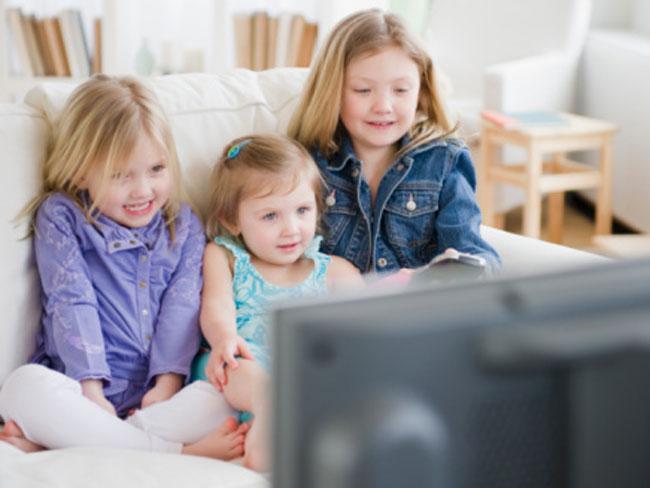We’ve all done it – stuck our tot down in front of ABC4KIDS just to buy ourselves time to have a shower. But are we causing them irreparable damage?
More to the point, will TV rot your tot’s brain? Well, not exactly, but it can be both good and bad for your child’s development.
Many studies suggest a link between too much early TV-watching and some behavioural and developmental disadvantages, but these tests were conducted on tots who watched cartoons for hours on end, not the occasional Wiggles DVD.
And new evidence now says that, watched wisely, television can be good for your child. Read on to learn what they should be watching and for how long.
Telly time-out
One of the major parental pluses of switching the telly on is that it can usher in a period of ‘quiet time’. “Sitting passively in front of the television at some point in the day is not a bad thing we all need time to veg out,” says child psychologist Dorothy Elton.
And turning on ABCKids is sometimes the only way mums can get a little ‘time-out’ of our own. “It’s also important to teach children that they can’t always be first in the queue – that, just sometimes, Mummy’s needs come first,” says Dorothy.
Knowing their limits
Any positive benefits of TV are lost if you overdo it: while half an hour of Bob the Builder can refresh a fractious three-year-old, a double Disney DVD may leave him dazed and slow to re-engage in active play.
And while a good kids’ program can help your two-year-old learn new words and find out more about the world, too much telly can affect his ability to talk, listen and concentrate. Children learn to speak by babbling to familiar adults and listening to how the adults respond to them, and you can’t get that two-way communication from a TV.
So how much is too much? Experts recommend a maximum of 30 minutes telly a day for under-twos (some say zero time), and one hour for three- to five-year-olds.
Making the right choice
As for what they should be watching, it depends on their age. For very small babies, the TV is little more than a flickering light, so don’t be too seduced by anything that advertises itself as “made especially for small babies”.
“Under the age of about six months,” says Dorothy, “they could be watching Neighbours or Lateline and it wouldn’t matter much. After that, anything with nice big faces in it will probably hold their attention for a while.’
For under-twos, look for gentle, slow-paced, repetitive programs. Anything that moves too fast or involves too many voices will confuse and overstimulate them.
For three- to five-year-olds, look for programs that mirror familiar situations in their world and actively involve your child by inviting him to sing along or respond to questions.
Do
Select age-appropriate programs.
Watch with him as often as you can, and make TV a starting point for conversation and imaginative play.
Play the same videos and DVDs often. Repetition makes it easier for your child to learn.
Turn the TV off when you’ve finished watching, or the background noise will distract you and your child from talking and playing together properly.
Don’t
Let him watch for too long (half an hour a day for under-twos and no more than an hour for preschoolers).
Let him have a TV in the bedroom. Your child’s more likely to watch alone (and perhaps inappropriately) and choose telly in preference to books and other toys.
Let him eat in front of the TV. Mealtimes should be the key moments in the day for family conversation.
Panic if he (accidentally) sees Bambi’s mum being killed. Before the age of four, few children have the ability to relate something happening on screen to something happening to them.

